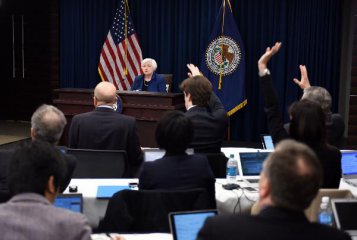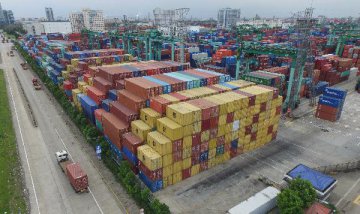
It is to prevent the systematic risks of certain economic entities or world economy to put forward the concept of Systematically Important Financial Institutions (SIFIs, or globally, G-SIFIs, G-SIBs). Hence, once identified as SIFIs, the regulation will be stricter.
According to G-SIFIs' mode, the framework of regulatory policies includes putting forward additional capital requirements, establishing an effective management framework to identify responsibilities of regulators in the management process and the tools and power they possess, carrying out Resolvability Assessment, making Recovery and Resolution Plans (RRPs), and strengthening regulations so as to promote regulatory efficiency, etc.
But, on the other hand, SIFIs could hereby promote their images and reputations, reduce financing cost, and enhance their influences and voice within the system and even on the international arena. Maybe they don't think that the label "SIFIs" is a "regulatory concern," rather it is an "honor on the list." If some institutions are previously identified as "SIFIs," these institutions seem to "legally" own a label as "too big to fall." They incline to engage in high-risk businesses, and may take advantage of their own fundamental service and systematic functions. They may even deliberately complicate governance structures, business relations and work procedures, and gain commercial profits by seeking subsidies and policy support and acquiring competitive advantages over those non-SIFIs, etc.
In reality, the "revolving door" phenomenon has further enhanced SIFIs' ability to influence decision-making. In the current financial crisis, regulators' stress test on SIFIs often turns into SIFIs' reverse test on regulators' bottom line of tolerance. Non-SIFIs often "huddle together to game" as well, cornering regulators to the embarrassment of misgivings by means of creating market panic, etc. This is the moral hazard which has repeatedly appeared in the practices of Europe and America to combat international financial crises. Regulatory Capture Theory can also partly explain this principle.
From the perspective of game theory, regulators sometimes are weaker than their regulatory targets. In the market economic system, although it is generally considered that regulators tend to let the market mechanism solve problems in the financial system first, when problems occur in some financial institutions, especially SIFIs, they might compromise. Facing some estimates of the worst situation, even though regulators know the probability of this situation is considerably low, they tend to take measures to avoid risks. Therefore, regulators are often in a passive situation under the pressure from the financial market and large-scale financial institutions.
Furthermore, the core issue is that regulators worry that rejecting to respond and even "rescue" may amplify uncertainty and "set off" systematic risks. As a result, they might be compelled to carry out larger-scale "bailouts": inadequacy of information (for example, troubled institutions might release deceitful financial reports) and the limited grasp of future development make it difficult for regulators to judge whether the situation they face is of systematic importance; SIFIs are interconnected, and the problem of any institution could evolve into a universal problem of all the other similar institutions; even when the businesses and activities of SIFIs (such as off-balance sheet business, etc.) are disposed, since these businesses have grown excessively and have excessively connected with systematic functions and systematic services in aspects like infrastructure, staff structure, brand reputation, etc., these institutions might not be able to continue to provide services of systematic importance or carry out functions of systematic importance; SIFIs are too complicated in terms of business scope, management structure, distribution region and applicable law, so any disposal scheme led by either individuals or the government could generate overly high cost and price; the further spread of negative information within the system will accelerate the market anticipation of the expanding of risks, and further form a vicious circle with the actual crisis in the financial system and even the entire economic system, etc.
For this end, some Western scholars have criticized and questioned regulators' practice of publicly identifying which institutions are SIFIs, and they put forward more powerful views on the regulatory measures to those institutions identified as SIFIs.






















Latest comments